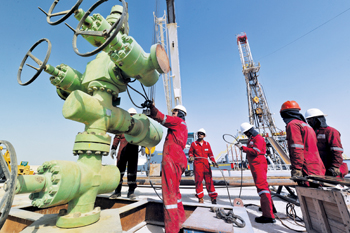
Saudi Arabia’s state oil firm is on a hiring spree in South Korea, as the world’s top crude exporter seeks engineers to run plants in its soaring refining sector – setting it on course to compete with some Asian countries that are big oil buyers.
Technicians from South Korea are an obvious target given parts of its refining sector are struggling and the two countries also have long-established business ties across a range of areas including refining.
But Asia has established itself as the world’s biggest refining region and so Saudi moves to become a major refiner are set to increase competition with countries such as India that also refine Saudi crude to supply Europe.
Having little prior experience in refining, state oil firm Saudi Aramco is trying to lure experienced engineers and technicians from South Korea with generous expatriate packages.
“Working in Aramco has three benefits – salary, kids’ education at an international school and career development to work at global companies in the United States and Europe,” said a South Korean engineer who is about to move to Saudi Arabia after working seven years for a major domestic refiner. The engineer – who declined to be identified due to contractual clauses – will initially live in the oil hub of Ras Tanura where there are gated compounds for foreigners.
Saudi Aramco did not reply to an email requesting comment but industry sources say that it has taken on more than 100 South Koreans since last year.
Energy Resourcing Korea, the recruiting agency Saudi Aramco uses, has about 100 jobs listed on its site for posts such as refining engineers, chemical engineers and technicians. South Korean technicians are generally not as well paid as Western counterparts, recruitment data shows, and the advertisements have had more than 4,000 hits since they were posted on April 30.
llustrating the pressure some Asia’s firms are under, SK Innovation Co, which owns South Korean refiner SK Energy and employs about 6,500 workers, recently offered an early retirement programme for the first time in 18 years after suffering its first operating loss in decades.
“As our refiners are reducing the size of their work force, this could be the best time to recruit,” said Jeon Jaewan, a research fellow at the Korea Institute for Industrial Economics and Trade.







































































